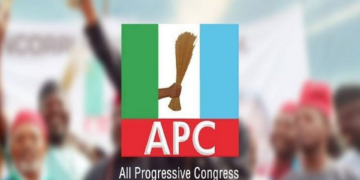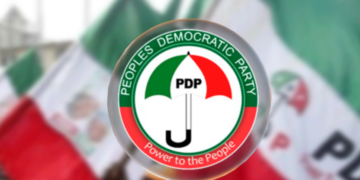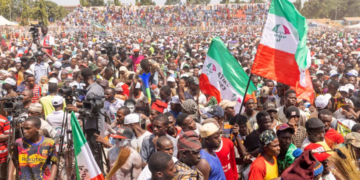The outcome of last Saturday’s Presidential and National Assembly Election has sent shock waves down the spines of many political actors in Nasarawa State, and the big names are left nursing wounds inflicted on them by the political development.
The news from the Independent National Electoral Commission (INEC) and that of the local government collation centers, in Lafia, the state capital from Monday, showed the shift in the political space in the state.
Senator Tanko Al-Makura, a former governor and one of the state’s key stakeholders, lost his return bid. He was defeated by a seeming political featherweight, Mohammed Onawo Ogoshi.
Apart from being a former member of the House of Representatives, Onawo did not boast of any political clout. He went into oblivion after his outing at the 8th National Assembly as member representing Doma/Awe/Keana federal constituency.
When the former suddenly reappeared on the state political space again, and secured the ticket of the Peoples Democratic Party (PDP), to vie for the Nasarawa South senatorial seat, where Al-Makura held sway since 2019, ahead of the 2023 election. Many had dismissed his challenge as inconsequential.
Some political pundits wrote him off considering the towering image and credentials of Al-Makura in the politics of the state.
The former governor stormed the state political scene in 2011, sacked an incumbent, the late Alhaji Aliyu Akwe Doma through a newly birthed platform devoid of a structure and reach, the Congress for Progressives Change (CPC). He rose in the political firmament of the state, dictating the political pace in the state.
Some analysts believed and predicted that Onawo had no chance going into the polls. But the results from the polls show a different outcome.
Factors that may have tilted scale against Al-Makura
There have been debates in the political space on the factors that may have caused his defeat. Some have argued that key among the variables that may have worked in favour of Onawo was his ethnic background.
Onawo is of the Alago stock. There are five local government areas that make up the Nasarawa South senatorial district. They include Lafia, Awe, Doma, Keana and Obi. Among the five, Doma, Keana and Obi are purely Alago-speaking.
Other analysts aver that the majority of the affected local government areas are Alago-speaking, might have turned the table against the incumbent Senator who is of Gwadara extraction.
They argue that that scenario scaled down the number of the remaining councils to two, namely, Lafia and Awe. Even among the remaining two council’s where Al-Makura’s tribesmen and women enjoyed some prominence, there was significant percentage of Alagos domiciled in the areas and with analysts saying such may have also swelled votes in Onawo’s way.
What’s more, Doma, Keana and Obi have been the PDP’s strongholds for over two decades. Even with the incursion of the ruling All Progressives Congress (APC) into the areas, key political elites opted to remain in the main opposition party.
Analysts also say that the senatorial contest was a payback of some sorts for the Alagos over the sack of the late former governor of the state, Aliyu Akwe Doma from office by Al-Makura in 2011.
Another Alago leader, Solomon Adokwe also suffered the same fate at the hands of Al-Makura in 2019, when he (Al-Makura), allegedly ‘forcefully took” the seat from the former senator using the power of incumbency as a sitting governor, even when “the poll outcome seemed to favour Adoke”.
Beyond the Alago factor, analysts believe that the strained relationship between the former governor and the Tiv speaking population of Obi, Awe and Keana also altered the pendulum against him.
The Tiv-speaking population felt that Al-Makura as a sitting governor did not do enough to protect them from “incessant attack by herders”. “So they align with their Alago neighbors in the onslaught against him,” a prominent figure who declined to be named said.
Our correspondent also gathered that the crisis thrown up by the last primary of the party in the area was said to have also affected the former governor’s fortune in the Saturday’s poll with aggrieved members working underground to undermine him.
With such a combination of factors and ill-feeling, Al-Makura’s infrastructural strides across the area as governor and later as Senator couldn’t prevent the onslaught which halted his journey, even if temporarily, on Saturday.
The dilemma of a party helmsman
The ill-wind which blew the ruling party, according to observers of the state’s political scene, started from the Keffi zone through Akwanga enroute Lafia, the state capital.
The national chairman of the party, Senator Abdullahi Adamu first lost his polling unit to Peter Obi’s Labour Party (LP). He also lost his senatorial district to the Social Democratic Party (SDP), and a House of Representatives seat to the same party.
The beneficiaries of the ruling party’s defeat at the senatorial and federal constituency levels, Ahmed Wadada and Jonathan Gaza were both APC members. Although they were forced out of the party during its last primaries ahead of the 2023 election, they joined the race on another party platform to emerge winners.
In the same vein, Godiya Akwashiki, the incumbent senator representing Nasarawa North was denied the ticket of the ruling party during the same primary, but secured his return bid through the SDP platform.
The three politicians defeated Adamu’s anointed candidates on their journey to 10th National Assembly in what analysts said was a ground up upset of the country’s political history.





